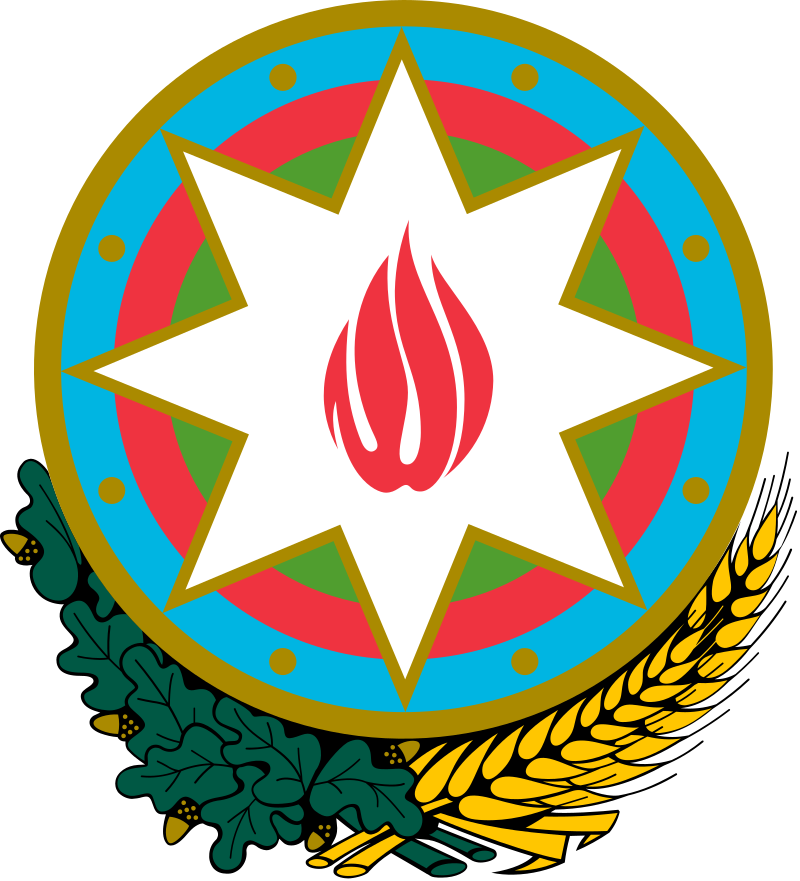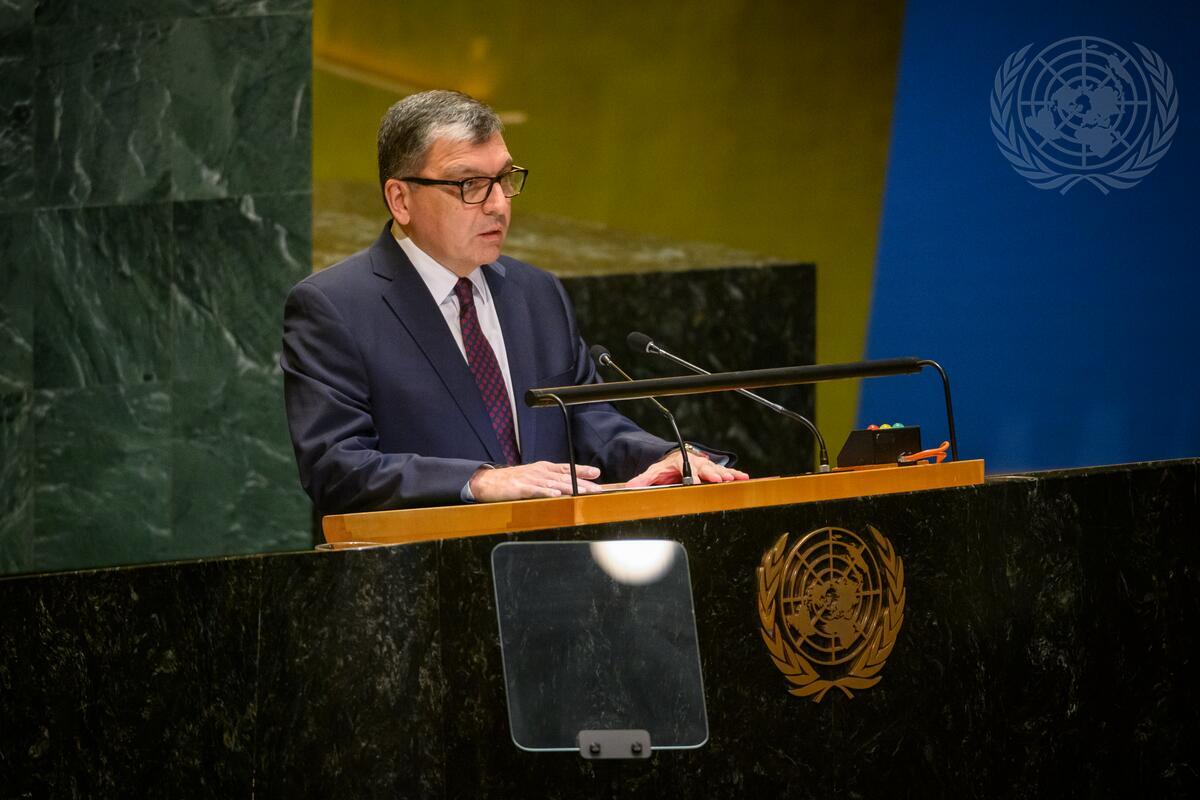Statement by H.E. Mr. Tofig Musayev, Permanent Representative of the Republic of Azerbaijan to the United Nations at the plenary meeting of the seventy-ninth session of the United Nations General Assembly under agenda item 132
|
Azərbaycan Respublikasının |
 |
Permanent Mission |
|
633 Third Avenue, Suite 3210, New York, N.Y. 10017 |
||
|
Statement by H.E. Mr. Tofig Musayev, Permanent Representative of the Republic of Azerbaijan to the United Nations
at the plenary meeting of the seventy-ninth session of the United Nations General Assembly under agenda item 132: The responsibility to protect and the prevention of genocide, war crimes, ethnic cleansing and crimes against humanity
1 July 2025
Mr. President,
This year marks two decades since the General Assembly committed to the responsibility to protect. This concept was reflected more specifically much earlier as part of States’ obligations under international human rights law and international humanitarian law. However, as the Secretary-General described in his report (A/79/875-S/2025/248), the respect for these obligations have significantly declined over the years and the promise of an end to atrocity crimes remains unfulfilled.
What is needed, first and foremost, is the political will to respect the rules and implement good practices, as well as to resolutely oppose impunity by prosecuting perpetrators and ensuring reparations for victims.
Mr. President, the topic under discussion is of particular importance for my country. In the late 1980s Azerbaijan hosted nearly 300,000 refugees. Many were killed or maimed during the expulsion.
Impunity for these acts has led to more widespread atrocities committed in the course of the aggression against Azerbaijan since the early 1990s, resulting in the deaths of tens of thousands of civilians, massive ethnic cleansing, the extensive destruction, cultural erasure and the severe damage to the natural environment and resources.
Despite the end of the conflict and the progress achieved in advancing the peace agenda, the refugees are arbitrarily denied access to their homeland, while the return of the internally displaced population and reconstruction efforts are slowed down by the serios threat of landmines and explosive remnants of war, which continue to maim and claim innocent lives. In his report, the Secretary-General expressed concern over the vast quantities of landmines being placed in rural and urban contexts. In the case of Azerbaijan, among the causes of a heavy human toll is the fact that many landmines and booby traps were planted in areas from which civilians were displaced and to which they are expected to return. Even cemeteries and cultural sites were mined to inflict maximum possible casualties.
The scale and magnitude of the landmine threat in Azerbaijan necessitate enhanced accountability, stronger solidarity and partnership, and adequate international assistance for national humanitarian demining capability and efforts.
The need to clarify the fate and whereabouts of nearly four thousand missing Azerbaijani nationals is another pressing humanitarian issue. The remains of 179 people found in 25 mass graves and other burial sites in the liberated territories have been identified and returned to their families. These graves shed light on brutal killings of many civilians.
Mr. President, accountability for atrocities is imperative and must be inevitable. It is also an essential tool to prevent the recurrence of violations and an important constituent on the path to genuine reconciliation and to the adoption of a longer-term approach that looks toward shaping a more peaceful, just and inclusive future. The denial and ignorance of serious violations, along with the attempts to discredit and thereby obstruct justice by various political means constitute clear contempt for international law and the rule of law.
The abuse of international mandates to engage in public propaganda campaigns, make selective, one-sided and inaccurate comments and issue baseless alerts about the risk of atrocity crimes must not be allowed and tolerated. It is appropriate to recall in this regard that the mandate of the Special Advisor to the Secretary-General on Genocide Prevention requires “a careful verification of facts and serious political analyses and consultations, without excessive publicity”.
Indeed, it is important that the relevant stakeholders evaluate claims with extreme caution and great reserve, rely on evidence that is fully conclusive and obtained by skilled examination, as well as distinguish between the claims and deceptions, on the on hand, and a State’s right and responsibility to protect its people and ensure criminal liability for serious breaches of international humanitarian law and international human rights law, on the other.
Azerbaijan is firm in its determination to further contribute to strengthening the prevention and protection architecture, as well as to ensuring accountability in line with the relevant obligations under international law and the objectives of the responsibility to protect.
Thank you. |
||

